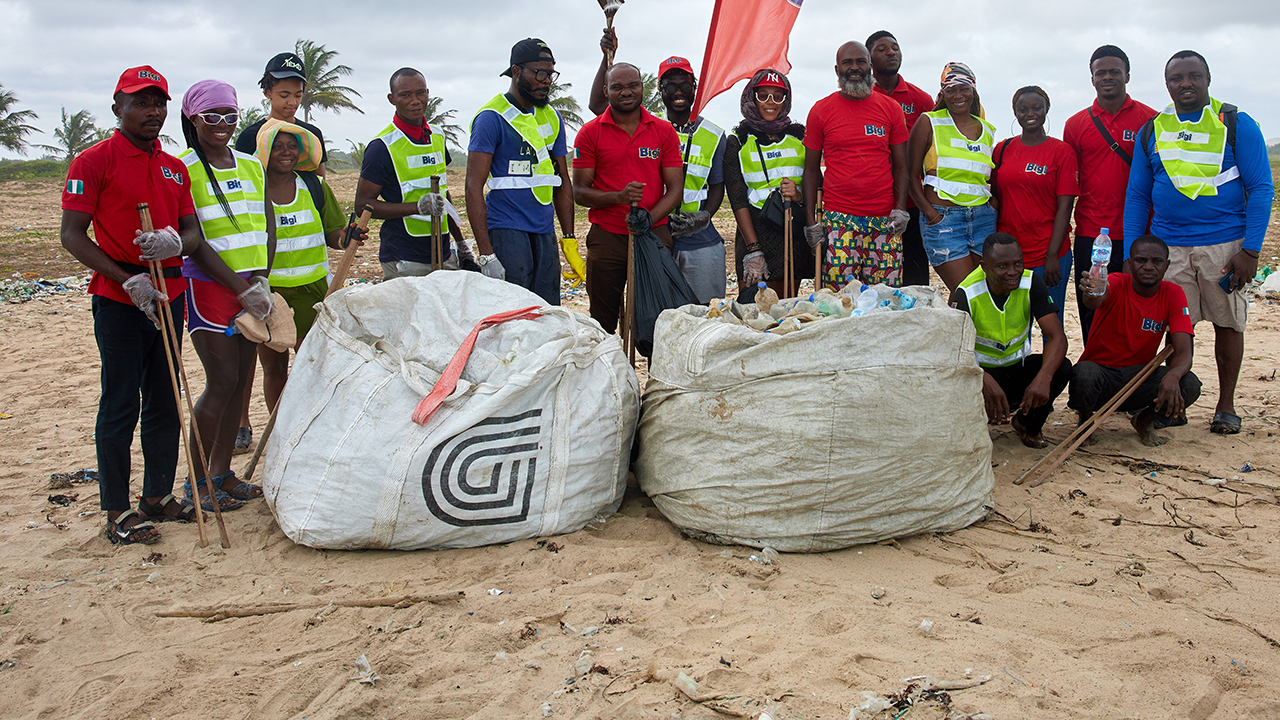
In a renewed effort to protect aquatic life along shoreline communities, Nigeria’s food and beverage manufacturer, Rite Foods Limited, has embarked on a clean-up exercise at Tarkwa Bay beach in Lagos.
This initiative, launched in collaboration with Popbeachclub, an eco-resort, focuses on cleaning up plastic waste from beaches. Since its inception in August 2021, ‘Riteonthebeach’ has effectively removed more than 180,000 pieces of plastic from coastal areas.
This programme extends beyond just cleanup efforts; it encourages local residents to actively engage in plastic collection and establishes systems for recycling as a means of creating jobs and enriching the community. The funds generated from this initiative are used to provide school supplies for the children living along the Lagos shorelines.
The event brought attention to the importance of wetlands in the Ilado area of Lagos State, which play a crucial role in the ecosystem by supporting migratory birds and serving as fish nurseries. Unfortunately, these wetlands face threats from plastic pollution and sand dredgers.
The Managing Director, Rite Foods, Seleem Adegunwa, who expressed the company’s dedication to preserving aquatic life and promoting a sustainable environment, said: “We are committed to promoting innovation, supporting sustainability, and creating a cleaner environment through collaborative efforts.”
The Founder, Popbeachclub, Mr. Akin Disu, said: “It is important for people to recognise that plastics are not mere rubbish; they hold value and can be recycled. They should be collected from the environment rather than being disposed of in wetlands to protect the fish and migratory birds that inhabit those areas.”
He further highlighted that children in coastal areas bring 22 plastic bottles collected by their parents to school daily. The students with the highest numbers of plastics collected in a term are given scholarships. These bottles are then processed by women in the community as part of a job creation initiative.
He called for a widespread adoption of such practices, not only in coastal areas but also in cities, where separating plastics at their source and recycling them can prevent environmental pollution.






